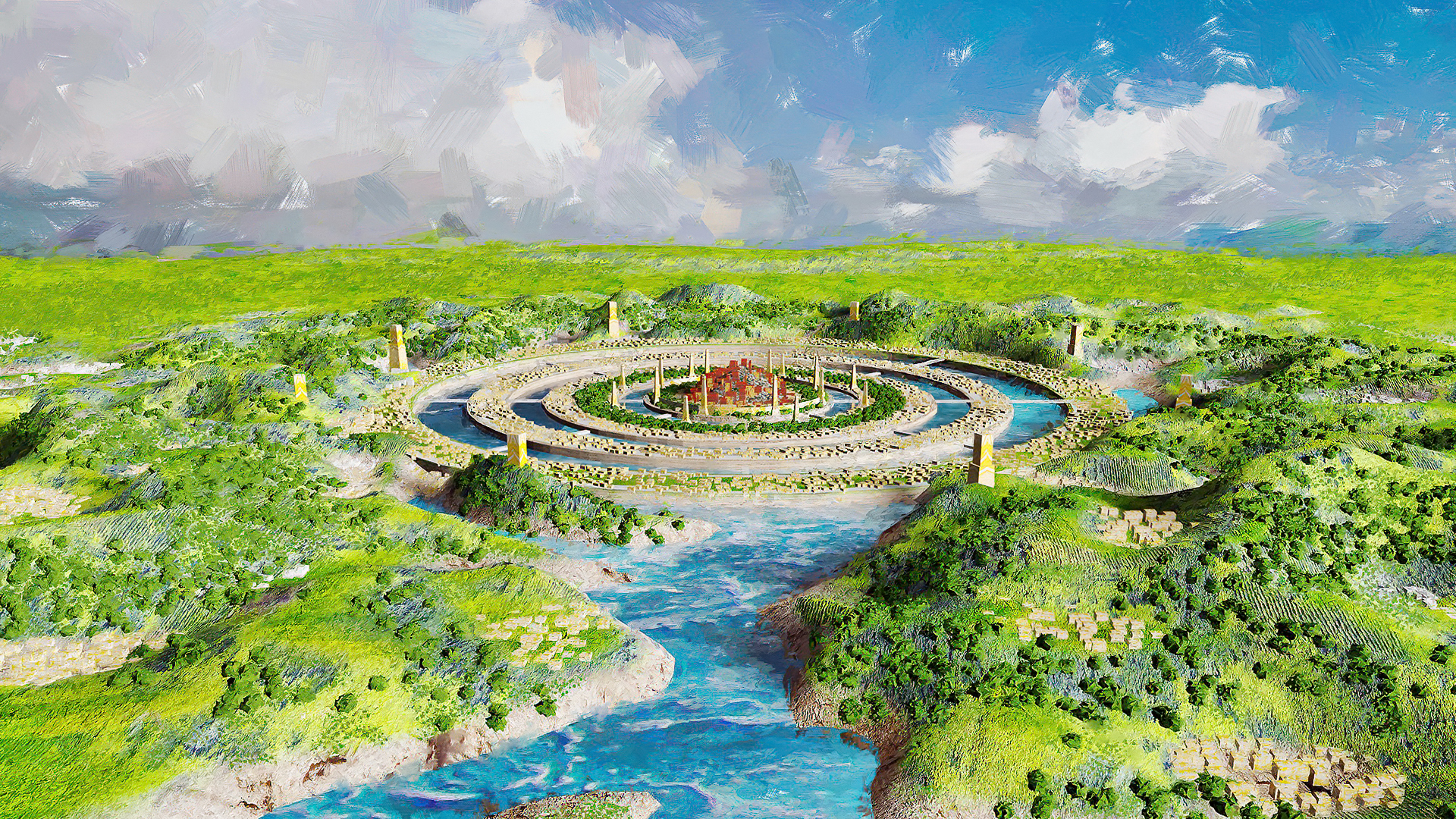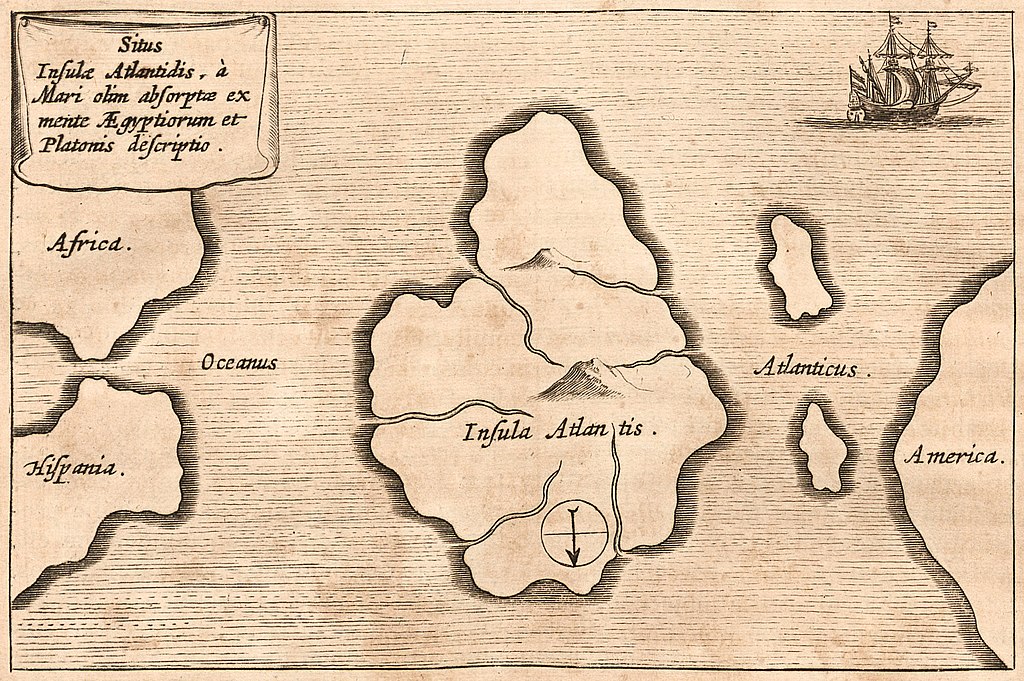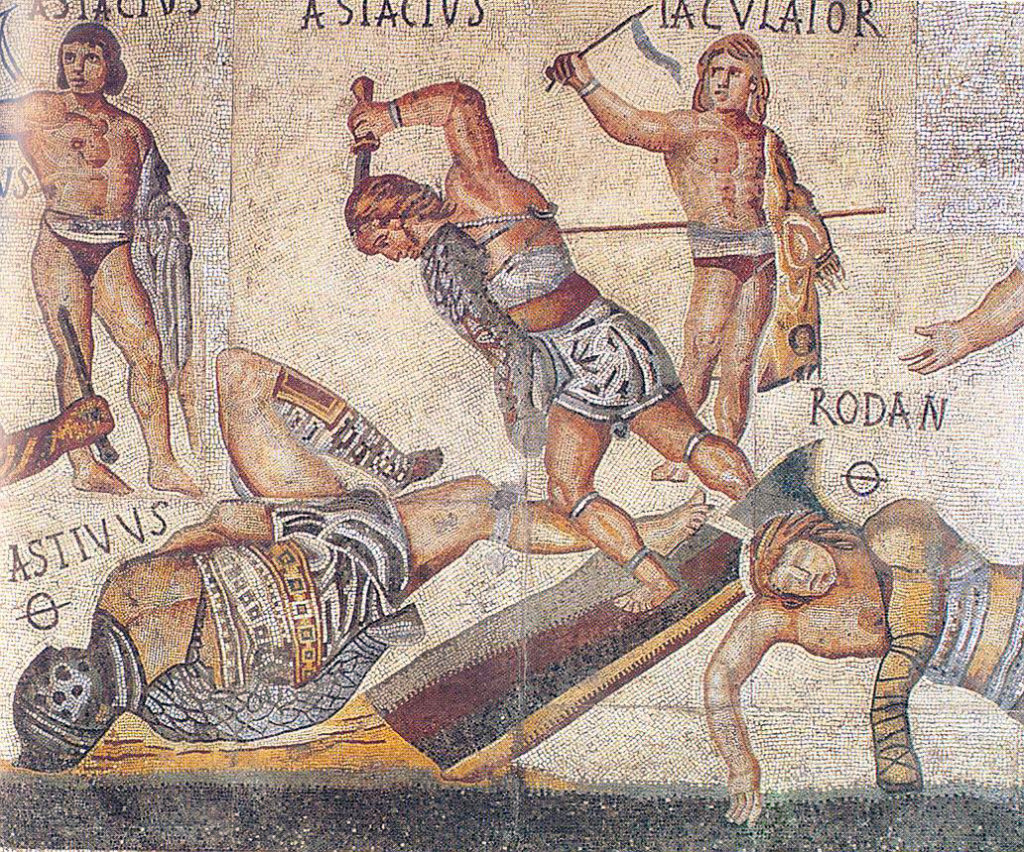The lost city of Atlantis: the ancient mythical civilization that sank beneath the waves and supposedly lies somewhere in the Atlantic Ocean waiting to be rediscovered.
If you’re like 57% percent of Americans, you may believe that lost civilizations like Atlantis exist. And that’s perhaps what makes the story of Atlantis so fascinating.
Appearing in two of Plato’s dialogues over 2,000 years ago, the story was almost certainly a fictional account meant to convey a message to Plato’s readers. Over time, the story of Atlantis became embedded in our collective imaginations.
Modern writers embellished the original story and came up with their theories about what happened to Atlantis’ inhabitants.
As captivating as the original story of Atlantis is, it’s the theories surrounding it that provide a truly rich history that’s well worth investigating.

The Origin Story of the Lost City
The origins of the myth of Atlantis extend far back into history.
The story goes that about 9,000 years before Plato, there was a civilization made up of half-human, half-god inhabitants. They lived on a series of islands somewhere in the Atlantic Ocean.
This great civilization was blessed with abundant natural resources, a powerful navy, and vast riches. No other civilization came close to matching the power of Atlantis. Spread out over an extensive formation of islands, the Atlanteans lived in a utopia.
Except for one thing. Its inhabitants, flush with power and riches, neglected to honor the gods. They became immoral, greedy, and vain. In their vanity and hubris, they decided to attack the cities of Europe and Asia.
They sent their armies to conquer the people of the Mediterranean region. But when they attacked Athens, the Atlanteans suddenly met their match. Athens, despite its comparatively small stature, repelled the Atlantean attack and subsequently freed the other peoples of Europe and North Africa.
To make matters worse, the Atlanteans’ insolence angered the gods. As punishment for having lost their way, the gods sent earthquakes and fires to destroy them.
In one terrible night and day, Atlantis sank beneath the water along with the heroic Athenian warriors who had battled them.
From that time on, it’s said that the area of the ocean where Atlantis once was remained impassable due to the subsidence of the Atlanteans’ fallen kingdom.
Other than some layers of rubble, the once-great civilization has been completely erased from existence.
On the face of it, this story seems steeped in myth. After all, a divine earthquake is a bit hard to swallow. But as history demonstrates, there have been numerous believers over the centuries.
How did Plato’s story become so believable?
Why Did Plato Invent Atlantis?
Plato wrote the story of Atlantis as a thought experiment. Plato was not a historian, so he was not describing actual events.
Instead, he was describing a fictional exchange in which Socrates asks those around him to come up with a city-state that could be used as a measuring stick against Athens. He mentions that he’d like to imagine his city, “contending against others in typical inter-city contests.”
In these dialogues between Socrates and his followers, three fictional city-states are presented, each of which can be compared to the Athens of Plato’s time. One of these city-states is Atlantis.
How do we know that the story of Atlantis isn’t real? A big giveaway is the fact that the person telling the story, a man named Critias, was describing something that happened over nine thousand years earlier. That is, thousands of years before Athens ever existed.
Like a game of telephone, Plato was writing about a man named Critias who heard the story from a Greek named Solon who, in turn, heard the story while in Egypt.
But if Plato’s Atlantis isn’t real, why would he include this story in his dialogues?
The answer is that he was trying to use the allegory of Atlantis as a warning to Athenians about the risks they run when hubris takes over. Plato wasn’t explaining a long-forgotten historical event. He was using a fictionalized civilization as an example of how not to act as a nation.
Most Greeks at the time of Plato would have readily recognized that he was merely using Socrates and Critias as interlocutors to convey a message.
But modern readers looked right past Plato’s true intention. They decided that the story was too good to leave as a philosophical experiment. Eventually, Plato’s brief mention of a fictional civilization turned into a genuine historical mystery.
How Atlantis Became “Real”
There have been many accounts of Atlantis since Plato. With each new author, the story becomes more and more fanciful.
In the 19th century, Jules Verne describes Captain Nemo visiting the sunken city in 20,000 Leagues Under the Sea. Since that time, the lost city of Atlantis has appeared in a wide range of movies and TV shows. But while Jules Verne’s Atlantis appears as a work of fiction, some people weren’t content to leave it at that.
Ignatius Donnelly was a US politician and writer who was convinced that the ancient Atlantis had been real. He thought that it gave rise to many of the greatest technological achievements of humankind.
In Donnelly’s version of events, some Atlanteans survived the deadly wrath of the gods and made it safely to the shores of Europe, Africa, and the Americas. In his book, Atlantis: The Antediluvian World, he presents a series of far-fetched theories regarding Atlantis, the Bible, and the origin of humankind.
Specifically, Donnelly claims that Atlantis was a kind of Garden of Eden, out of which all of the other great civilizations emerged. In the wake of the devastating flood that destroyed Atlantis, the survivors became the kings and queens of far-flung societies.
In an attempt to lend his theories an air of legitimacy, Donnelly points to various pieces of evidence from other cultures. He discusses that in both Egypt and Peru, the people worshiped the sun. He uses the Bible’s story of the flood that recounts the terrible fate that befell Atlantis. He even speculates that bronze-age tools came from Atlantis.
Donnelly’s book became a bestseller in the United States. This helped propagate the idea of Atlantis as a historical fact.

Atlantis in Nazi Philosophy
It wasn’t just Americans who latched onto the idea of an original race giving rise to all others.
The Nazis are well known for their obsession with race and racial superiority. Some Nazi leaders, including Heinrich Himmler, the head of the feared SS and Gestapo, were convinced Atlantis was the wellspring from which the Aryan race originated.
Many of these ideas came from a man named Hermann Wirth, who believed many of the same theories put forward by Ignatius Donnelly. Like Donnelly, Wirth also believed that escaped Atlanteans, in their attempt to get as far from the sea as possible, ended up in Tibet.
The Nazi leadership took this theory so seriously that in 1938, Himmler sent an expedition of Nazi scientists to explore Tibet and measure the facial features of the local inhabitants.
After analyzing what they had found, the team concluded that the Atlanteans had indeed made it to Tibet, and the people living there were direct descendants.
This finding worried Himmler because it indicated that there was a worrying degree of racial mixing over the centuries. This encouraged him to redouble his sinister efforts toward creating a pure race.
Searching for the Lost City of Atlantis
The search for Atlantis and Atlantean descendants didn’t end with the Nazis.
People have searched in places as varied as Bolivia, Spain, and Antarctica. But some scholars think they’ve found the real Atlantis – at least, the civilization that inspired Plato to invent the fictional civilization.
That civilization would be the Minoans. You see, like the Atlanteans, the Minoans were an important naval power and were spread out among several Aegean islands.
Although they weren’t around 9,000 years before Plato, they did predate him by 900 years.
Like Atlantis, the Minoan civilization suffered a terrible natural disaster. At some point between 1611 and 1538 BC, an earthquake hit the island of Santorini and destroyed much of the Minoan navy.
It wasn’t the eruption itself that caused the downfall of the Minoan civilization. That was largely caused by an economic collapse that didn’t occur until the 15th century AD.
But could Plato have mixed these two historical events when inventing the story of Atlantis? There’s certainly enough evidence to make a good argument.
After all, the Aegean Sea covers the spot where the African tectonic plate slides underneath the European one. That unique geological characteristic means the Aegean Sea has experienced its fair share of seismic events over the years.
It goes without saying that if Plato was alluding to the ancient Minoan civilization, none of the future theories about Atlanteans could be true.
On the other hand, if you truly believe that Atlantis exists, those historical realities might not bother you one bit.

